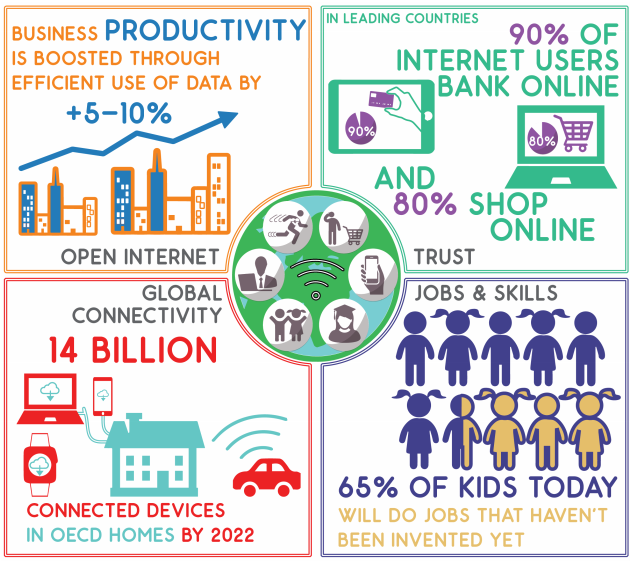
When the term "electronic technology" is mentioned, many people will have such a picture in their minds: Humanoid robots concentrate on their work while sitting at the table, but these tasks are actually what they do! The task of being taken away by robots has become a nightmare for many people. Most people have this anxiety. This is the same as the anxiety of the coaches of the 1920s. At that time, the impact of the car made many coachmen unemployed. However, the rise of automobiles has also brought a lot of new jobs, and their children and grandchildren have found better jobs: car manufacturing, car repair, travel sales, delivery services, road construction, gasoline sales, and so on.
In the 1920s, it was difficult for us to imagine that these jobs were accustomed to us today. In the electronic age, it is also difficult to predict which new jobs will emerge in the future.
It is true that with the development of electronic technology, new products and services will be created, the number of workers in the industry will also be reduced, and some workers will also face the risk of unemployment or salary cuts. However, as productivity increases, product costs will decrease, new products will emerge, and demand, employment, and wages will increase. However, the real headache for the workers is that there is a time gap between losses and benefits. The development of electronic technology will soon take away their jobs, but new job opportunities have emerged slowly. We need to create new markets, transfer assets between industries, create new business relationships, and develop new skills: all of this takes time. A recent analysis by the Organization for Economic Co-operation and Development in the World shows that investment in ICTs over the past 20 years has had a negative impact on employment for a period of time, but this effect will disappear over time.
In order to speed up the emergence of new jobs, investment in data and electronic infrastructure becomes more and more important. However, since 2001, the GDP of ICT investment has also declined. People’s acceptance of advanced electronic technologies is also getting higher and higher. Many companies also have their own web pages, but only a few of them use advanced information and communication technologies (such as enterprise resource planning software, e-commerce, cloud computing, Radio frequency identification, etc.)
At the same time, jobs created by electronic technology require practitioners to have a variety of skills. Some of them are technical, such as software development, web page management, etc., but others and technologies do not touch. For example, the popularity of electronic information requires that company employees have better planning capabilities and faster response capabilities, stronger team spirit and leadership. At the same time, the development of e-commerce demands sales personnel to be different from the past.
In short, electronic technology has reshaped business models and corporate organizational forms, making "soft power (such as information processing, self-decision making, problem solving, and communication skills)" more important. However, many people at this stage do not have such capabilities. According to the analysis of the Global Organization for Economic Co-operation and Development (OECD), fewer than 40% of the working population who are required to deal with software on a daily basis are skilled and effective in the use of electronic technology.

And those who have these capabilities will be able to advance rapidly in this society, which will cause greater injustice. Some people think that: Electronic technology has increased the social needs for high-end and low-end capabilities, while reducing the demand for mid-range capabilities, which has deepened the two levels of differentiation. However, the Global Organization for Economic Co-operation and Development has found that although the development of electronic technology has caused polarization in the workplace since 2007, this phenomenon is only temporary.
The impact of electronic technology has become more than a shift in employment and job skills. It also affects each independent work organization because it allows companies to re-differentiate tasks and increase the number of part-time workforces. After some companies have an innovative online platform, they begin to connect individual suppliers with individual consumers to make some full-time, long-term jobs more flexible. This trend has changed the traditional employment relationship and has had an important impact on labor market policies and forms.
The development of online services such as this allows people in different countries and regions to connect and communicate and collaborate through online platforms. They can accomplish different tasks, from low-end tasks such as data entry and management support, to high-end tasks such as programming, legal consultants, business information, and online work platforms.
For workers, their work options are more flexible, but it also means lower job security, higher income fluctuations, and they may enjoy lower social security, while also stressing career development and promotion. The greater may be. For companies, lower labor costs and more long-term part-time personnel will erode their asset relations and create management difficulties.
In fact, in cooperation with social partners, they should monitor the emerging labor market trends and should explore more ways to develop labor market procedures and safety nets to help companies develop and ensure the quality of work.
Therefore, the government needs to change its policies to meet the challenges posed by electronic technology to ease public anxiety. First of all, the government should increase its investment in the information and communications industry and generate heat for innovation. At the same time, the government should encourage market competition and create favorable conditions for the development of entrepreneurs. This will also create new markets and increase public confidence. In addition, the government should also support people who have switched careers because of technological development, allowing them to adapt to new jobs faster and reduce social costs.
In short, in this era of surging electronic technology, for the government, active labor market policies, sound income support, and excellent education systems will become more and more important. For individuals, lifelong learning has become a development. The necessary conditions so that it will not be eliminated by the robot.
Via:Robohub
